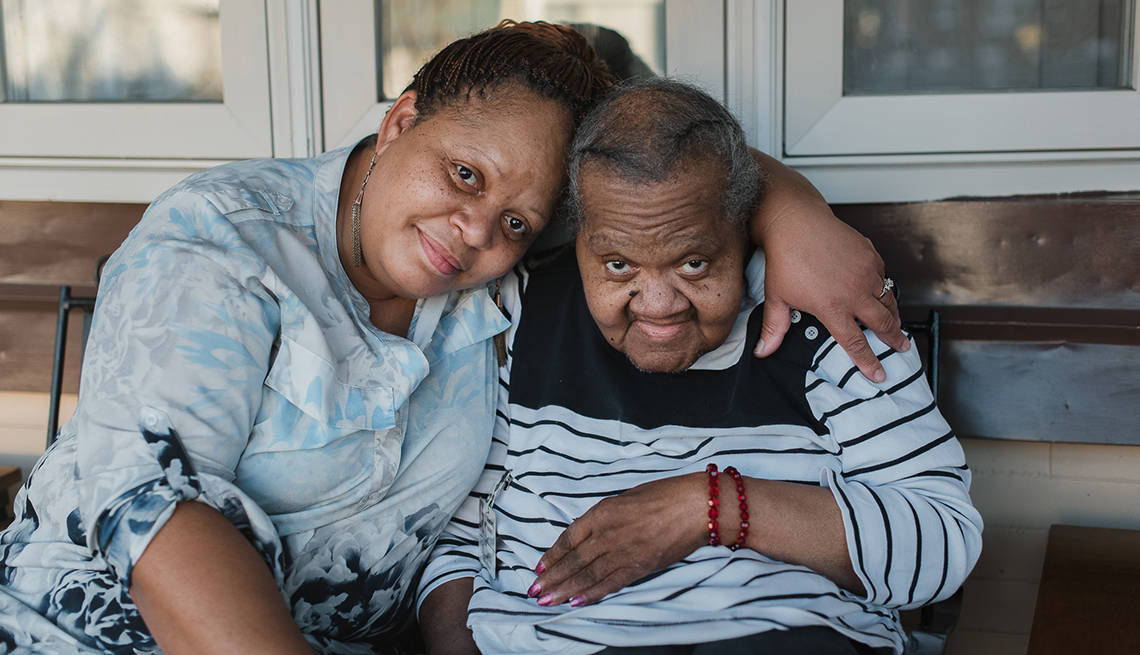AARP Hearing Center

Denise Lewis’ daily schedule has become a delicate balance of working and caretaking since her mother’s adult day center—like so many others in the state—shuttered in March because of the COVID-19 pandemic.
Lewis, 53, a paralegal from Philadelphia, scrambles every week, coordinating schedules with her daughter and brother. Her mother, Barbara, 75, lives at home but needs constant care, after suffering a stroke and developing dementia.
“It’s stressful, but you gotta do what you gotta do. We all chip in,” Lewis said. “You take care of your loved one. She took care of us.”
Her mother misses the social interaction at the center, so the family tries to replicate activities such as bingo, art projects and music time.
Caregiving while working is never easy, but it’s even more challenging in a pandemic. With many adult day and senior centers closed, older people are more isolated, and their relatives’ schedules are thrown into turmoil.
Pennsylvania’s 1.6 million family caregivers, many of whom are raising children, are making do as best as they can.
“What we are hearing from caregivers is that they both have jobs, the husband and the wife. It is really straining them financially paying for care or leaving work or using vacation time to care for a loved one,” said Bill Johnston-Walsh, state director for AARP Pennsylvania. “It leaves them emotionally stressed.”
That added burden is why AARP is pushing state lawmakers to pass two bills that would provide paid family leave for Pennsylvanians.
The legislation, which has bipartisan support, would create an insurance program funded by small deductions from private-sector workers’ paychecks, initially 0.588 percent of wages. It would pay benefits to those who take medical leave or help care for a sick family member. Employees would get 90 percent of their salary for up to 20 weeks.
Lawmakers are expected to weigh the bills during next year’s legislative session, which begins on Jan. 6.
Such insurance would give caregivers a way to keep their jobs and allow older relatives to stay in their homes, Johnston-Walsh said. It’s also less costly for taxpayers than sending people to Medicaid-funded nursing homes, he added.
Senior centers also strained
Denise Lewis feels fortunate that family members can chip in, making it possible to care for her mother at home. But she would love to see an insurance program that would give caregivers paid leave. “It would definitely help.”
Many adult day centers around the state have slowly reopened. However, with COVID-19 cases spiking across the country, new restrictions could be put in place.
State officials say it's best for families to call their local centers to find out the current status. A list of contact information for facilities in every county is available online.
Facilities must weigh the benefits of social interaction and meals provided against the risks of COVID-19 for a susceptible population, said Pennsylvania Secretary of Aging Robert Torres. Some residents are not comfortable coming back, and others do not want to wear a mask.
The state has helped centers provide grab-and-go packed lunches, Torres noted. “We have worked hard to make sure people are not going hungry.”
Go to aarp.org/pa or call 866-389-5654 to learn more about AARP’s legislative priorities or how to become an advocacy volunteer.
Cristina Rouvalis is a writer living in Pittsburgh.
More on Caregiving
- Caregiving lessons from the pandemicFamily Caregivers Deserve Thanks During Pandemic































































